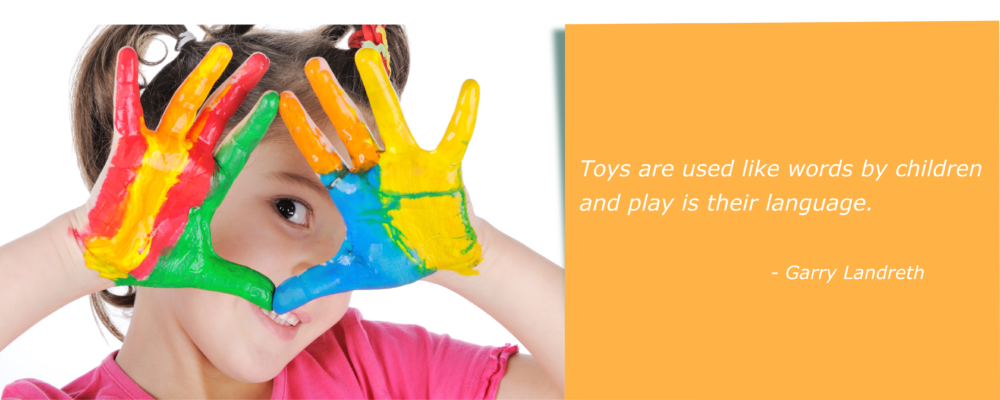
What is Play Therapy?
Play is a child’s natural means of self-expression and communication, and is essential to the healthy development of a child’s physical, emotional, social and cognitive functioning. Through play children are able to express and make sense of their feelings, and gain a better understanding of the world in which they live.
Conventional talking therapies are often inappropriate for children and young people who struggle with putting their feelings into words. Play Therapy provides a safe environment where a qualified and empathetic therapist gains a deep understanding of the child’s underlying issues through the metaphor of play, behavior and communication with the therapist.
The non-judgmental and emotionally supportive therapeutic atmosphere allows the child to be themselves and to express their inner struggles in a safe environment. This can lead to the resolution of their conflicts, create new healthier coping strategies and unlock the potential for self-growth and self-healing.
Non-directive Play Therapy was pioneered by child psychologist Virginia Axline, based on Carl Rogers’ principles of non-directive psychotherapy and theories of child development, attachment and separation.
How does it work?
During a play therapy session the child has the opportunity to work with a wide range of materials and methods, such as sandplay, art (paint, clay, arts & crafts), puppets & masks, music, movement, storytelling and creative visualization. This opportunity of free, undirected play and creativity allows the child to work from both their conscious and unconscious self.
The therapist uses as few limits as possible but as many as necessary to anchor the play in reality. These limits give the child a sense of safety and protection and help build the relationship with the therapist.
Who can it help?
Play Therapy can be an effective therapeutic approach for a wide range of difficulties that children may experience including:
- Academic or social difficulties
- ADHD (Attention deficit hyperactive disorder)
- Bullying
- Anxiety, stress or phobias
- Depression
- Loss through bereavement or family breakdown
- Anger and aggression
- Nightmares or disturbed sleep
- Day and night time wetting
- Disability
- Delayed development
- Autistic spectrum
- Trauma
How do we know that Play Therapy works?
Play Therapy International has carried out extensive research in a number of settings such as schools and primary health care facilities. These studies measured the changes that had taken place in the children’s behavior and emotional state after receiving Play Therapy. The results showed a 70 to 84% positive change in children receiving play therapy, most commonly in concentration and independence, as well as a greater self-awareness. Teachers reported a 92% improvement rate in children receiving Play Therapy, specifically in group work, listening, communication and concentration skills. Play Therapy has also shown to reduce school exclusion and improve attendance rates.
